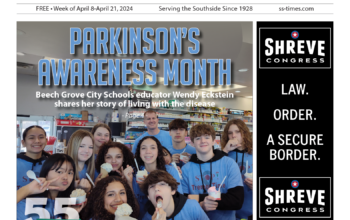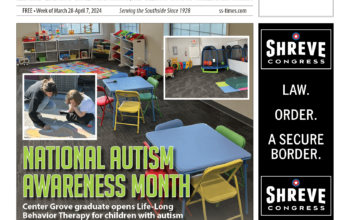By Nancy Price
Teenage years are complicated. You’re not a child anymore, but not quite an adult. You’re worried about your grades, getting into college and what you’ll do with the rest of your life, in addition to concerns like fitting in, dating and getting along with your family.
When pressures mount and you’re looking to escape from reality for a few hours, it’s easy to give in to temptation by drinking or doing drugs at parties. Because that’s what’s considered normal. But when you’re back home and nervous about your chemistry test or bothered about the fight with your boyfriend or girlfriend, you want to escape again. It helps you feel better … for a while. But then you’re drinking or using drugs just to get through the day. You start failing your classes and avoid time with friends and family so you can go to your room and use again. You’re no longer in control of your own life.
Then someone close to you tries to help, but you refuse. They are trying to take away the only thing that matters to you anymore. You’re forced to go to treatment, but you feel preached at, and once it ends, you’re back to using again. No one around you understands.

ACCEPTANCE, UNDERSTANDING AND HOPE
Rachelle Gardner, executive director of Hope Academy, is helping high school students around central Indiana to focus on their recovery efforts in an atmosphere of acceptance, understanding and hope. Gardner, a lifelong Southside resident, co-founded Hope Academy in 2007 after working with teens at Fairbanks, an addiction treatment center on the north side of Indianapolis.
“In 2006, we decided to look at how we could help kids struggling with substance use disorder and focus them on recovery versus them having a revolving door in and out of treatment,” she said. “The school started as a partnership with Fairbanks. We remained there until June 2020 when the relationship with Fairbanks ended and we moved to our new location (at 3919 Madison Ave. in Perry Township). What we are providing them is a place they can be safe to let down their guards to admit that they need help and to be open to that help.”
Hope Academy is one of seven fully accredited recovery high schools in the U.S. (the only one in Indiana). It is a tuition-free public charter school offering free transportation, recovery support, individualized instruction and Core 40 and Academic Honors diplomas. In addition, the school offers a Guiding Paths to Success (GPS) alternative peer group with after-school hangouts, homework help and tutoring, peer mentoring, individual, group and family therapy and sober, fun social activities.

GUIDING PATHS TO SUCCESS
“We try to help students navigate stressors like anxiety, depression and substance use, while also making progress with their education,” said Alex Shaffer, a peer specialist with Guiding Paths to Success. “As a recovery team, we share many life experiences with our students and often have first-hand knowledge of the problems they are dealing with. By taking the approach as a peer, students are often more receptive to constructive criticism.”
“Life skills and social time helps kids catch up on things they might have missed because they weren’t able to be present physically or mentally due to drugs,” added Sarah Platt, peer recovery specialist with Hope Academy. “Your teenage years are when you’re supposed to have your first taste of independence and freedom. Feeling behind when compared to your peers can leave kids feeling depressed, lonely and less than. Learning life skills is something that can help build a kid’s confidence and help them believe they are worth recovery. Feeling heard and validated can change one’s whole perspective and help them be more open to advice. Being on the same level with a kid and letting it be known you are there to support them every step of the way rather than criticize their choices is a crucial part of creating a bond with the students.”
Platt attended Hope Academy for two years before graduating last year. Before she began attending the school, she said she was worried that she wouldn’t make any new friends and wouldn’t be happy being sober. She felt surprised by how the school felt normal to her. “I felt like a high school kid and I hadn’t felt like that in a long time,” she said. “I didn’t realize how much at home I would feel and connecting with staff and people.”

Shaffer, peer specialist for Guiding Paths to Success program; and Sarah Platt, peer recovery specialist.
“I was able to find people more like myself,” added Kailey Nickels, who also graduated from Hope Academy and is currently a secretary at the school. She plans to study nursing. “I thought there was no way I’d have fun or meet anyone I’d get along with. Hope Academy was a safe haven for me. It taught me things about myself I didn’t know. You learn how to cope with things without the use of substances and how to have a life again.”
Hope Academy is partnering with the Beech Grove Comprehensive Drug-Free Coalition (CDFC). Diana Hendricks, executive director for Beech Grove CDFC, called the partnership “a true blessing for both our organization’s missions.”
“I believe that Hope Academy’s expertise, in working with youth in recovery from substance misuse, will greatly enhance our knowledge through the youth perspective on effective prevention efforts and intervention programs,” Hendricks said. “We are excited Hope Academy has joined our CDFC family!”

For more information about Hope Academy, go to hopeacademyrhs.org.

